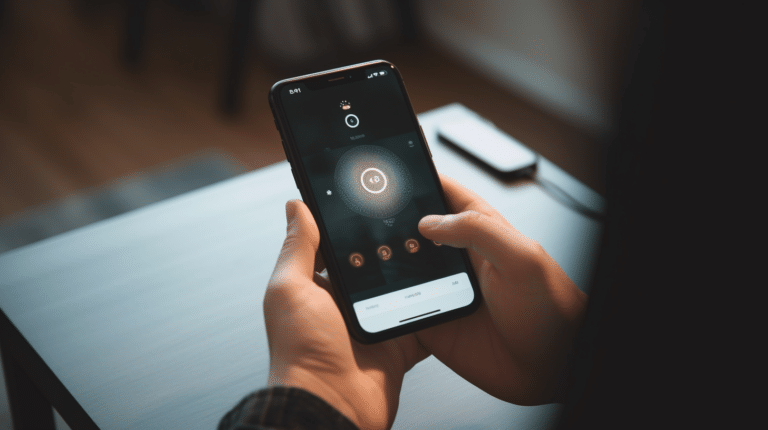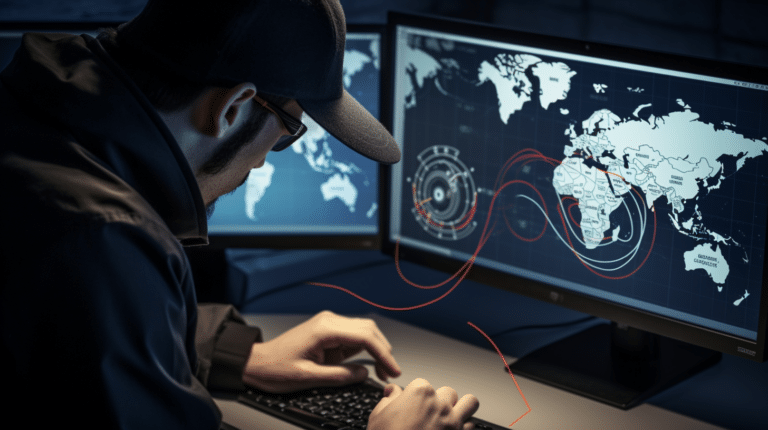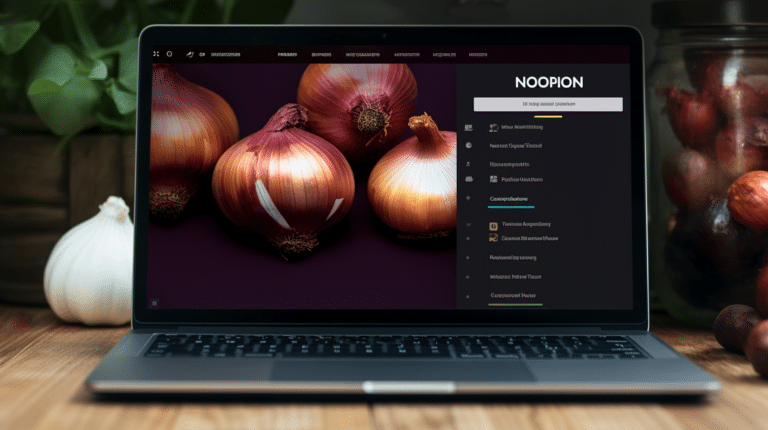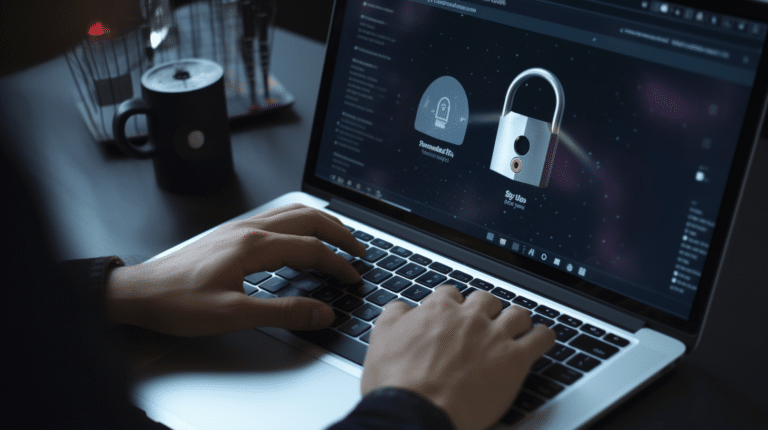In today’s digital era, privacy and security are paramount concerns for individuals and businesses alike. A Virtual Private Network (VPN) has become a popular tool for many users seeking to protect their online activities. A VPN provides an encrypted connection between a user’s device and the internet, masking their IP address, and allowing for secure and anonymous browsing. But is a VPN really worth it for everyone?
While VPNs offer many benefits, it’s essential to understand the circumstances in which they are most effective. For some users who require additional protection and privacy, a VPN can be a valuable addition to their digital toolkit. For others, the importance of a VPN may vary based on their specific needs and behavior online. Ultimately, it’s up to the individual to weigh the pros and cons of using a VPN and determine if the benefits justify the cost and potential downsides.
Key Takeaways
- VPNs provide increased security, privacy, and anonymity online, but their usefulness varies depending on individual needs and circumstances.
- Factors to consider when choosing a VPN include its effect on internet speed, free vs. paid options, and specific usage scenarios such as gaming or bypassing geo-restrictions.
- As technology advances and surveillance concerns grow, understanding the role of VPNs in data protection and user privacy is crucial.
Understanding VPNs
A Virtual Private Network (VPN) is a technology that allows users to create a secure and encrypted connection over the internet. This secure connection helps protect your online activities, such as browsing, streaming, and communication, from unwanted monitoring or snooping. In this section, we will explore the types of VPNs and how they function.
Types of VPNs
There are mainly two types of VPNs:
- Remote Access VPN: These VPNs are used by individual users who want to connect securely to a remote network. Remote access VPNs are commonly used in scenarios where employees need to access their company’s resources from home or while traveling.
- Site-to-Site VPN: These VPNs are used by organizations to connect multiple office locations securely. Site-to-site VPNs establish a secure connection between networks, allowing data to be exchanged securely between offices.
How VPNs Function
VPNs primarily function by establishing an encrypted connection between your device and a VPN server. This encrypted connection ensures that your data is transmitted securely over the internet. Here’s a step-by-step explanation of how a VPN works:
- When you connect to a VPN, your device sends encrypted data to the VPN server. This encryption ensures that no third party can intercept and read the data.
- The VPN server decrypts the data and sends it to the destination website or server.
- The destination server sends the requested information back to the VPN server.
- The VPN server encrypts the data again and sends it back to your device.
- Your device decrypts the data, allowing you to view the requested content securely.
By using a VPN, you can ensure that your internet connection remains secure and private. This is particularly important when connecting to public Wi-Fi networks, where your data is more susceptible to interception. In addition, VPNs can help you bypass geo-restrictions and access content that may not be available in your location.
Security and Anonymity Provided by VPNs
VPN services are designed to provide users with enhanced security, privacy, and anonymity while browsing the internet. One of the primary functions of a VPN is to encrypt your internet connection. This helps protect your data from being intercepted by third parties and keeps your online activities confidential.
By using a VPN, your internet service provider (ISP) can no longer see which websites you visit or collect any of your browsing data. Instead, your ISP only sees the encrypted traffic between your device and the VPN server. This offers a significant layer of privacy that prevents ISPs from tracking your online behavior.
Anonymity is another key benefit of using a VPN. When connected to a VPN server, your true IP address is hidden, and you are assigned a new IP address that corresponds to the VPN server’s location. This makes it difficult for websites and advertisers to link your online activities directly back to you, further boosting your privacy.
VPNs can also help protect you from malware and other online threats. Many VPN services include built-in security features that block known malicious websites and prevent unauthorized access to your network. This adds an extra layer of protection against hackers and other cybercriminals.
When it comes to password and other sensitive information protection, VPNs often use strong encryption protocols to ensure your data remains secure while in transit. Encryption makes it virtually impossible for third parties, such as hackers or government agencies, to access and decipher your data.
However, not all VPN services offer the same level of security and privacy. Some VPNs may keep logs of your online activities or have weak encryption protocols. To ensure the best protection, it’s essential to carefully research and choose a reputable VPN service that prioritizes user privacy and employs strong security measures.
In summary, VPNs are a valuable tool for improving your online security, privacy, and anonymity. They encrypt your internet connection, hide your IP address, protect against malware, and secure your sensitive data. By choosing a reputable VPN service, you can enjoy a safer and more private browsing experience.
Privacy Issues and Tracking
With the increasing amount of personal data being shared online, privacy issues have become a major concern for internet users. One way to protect your online privacy is by using a VPN (Virtual Private Network). A VPN can help secure your internet connection and prevent advertisers and other third parties from tracking your online activities.
Cookies are small pieces of data that are stored on your device by websites to personalize your browsing experience. Although cookies can be useful, they can also be used by advertisers and other third parties to track your browsing history and collect personal information. By using a VPN, you can prevent these entities from accessing your data and targeting you with tailored advertisements.
Most web browsers today come with built-in privacy features, such as blocking trackers or using incognito mode. However, these features may not be sufficient in preventing unauthorized access to your browsing information. A VPN provides an extra layer of protection by encrypting your data and hiding your IP address, making it difficult for third parties to track your online activities.
While a VPN can be an effective tool in protecting your online privacy, it’s essential to choose a reliable and trustworthy service. Some providers may log your browsing history or sell your data to advertisers, negating the benefits of using a VPN. It’s crucial to carefully assess the provider’s privacy policy and ensure they have a solid record of protecting user data.
In addition to using a VPN, you can further protect your privacy by employing other tools such as Privacy Badger, which can block trackers and advertisers from collecting your personal data. By combining a VPN with other privacy tools, you can take a comprehensive approach to safeguarding your online data and web browsing activities.
Negatives of Using a VPN
While VPNs offer numerous benefits, they also come with some drawbacks that you should consider:
- Performance issues: A VPN can potentially slow down your internet connection, as it takes additional time and resources to encrypt and route your data through a secure server. This may be particularly noticeable on public Wi-Fi networks, where bandwidth is already limited. However, some providers invest in faster servers and optimization techniques to minimize the impact on your browsing experience.
- Potential logging issues: Not all VPN providers adhere to strict no-logging policies. This means that your online activities could potentially be tracked or monitored by the VPN service or third parties. When selecting a VPN, it’s vital to research their logging practices and opt for a provider that maintains a transparent and robust privacy policy.
- Access to restricted content: While VPNs can typically bypass geo-restrictions to access blocked content, some websites and streaming services actively block VPN traffic. In such cases, you might need to switch to another server or VPN provider to evade these restrictions, which can be inconvenient.
- Legal and censorship challenges: In countries with stringent government censorship, the use of a VPN may be illegal or heavily regulated. Users may face penalties, including fines or imprisonment, for accessing restricted content through a VPN. It’s essential to research local laws and regulations before using a VPN in certain jurisdictions.
- Risk of malware: Some VPN providers might not have the strongest security measures in place, which can leave users vulnerable to malware attacks. To protect yourself from these risks, it’s crucial to choose a reputable VPN service with strong security protocols and regular software updates.
In conclusion, it is important to weigh the benefits and drawbacks of using a VPN before deciding whether it is the right solution for your needs. By considering these negatives, you can make a more informed decision and find a VPN service that meets your expectations.
Geo-Restrictions and Content Access
Geo-restrictions are a common practice among streaming services like Netflix to limit the availability of content based on the user’s location. These restrictions are often due to licensing agreements and regional pricing strategies. As a result, users may find certain movies or shows unavailable in their country, even though they have access to the streaming platform itself.
A Virtual Private Network (VPN) can offer a solution to these geo-restrictions. VPNs work by encrypting your data and routing your internet connection through a server in a different country. This process effectively changes your perceived location, allowing you to access content that may not be available in your region. An added benefit of using a VPN is the enhanced privacy and security it provides, particularly on public Wi-Fi networks.
However, it is essential to understand that streaming services are constantly improving their methods to detect and block VPNs. While many VPN providers continuously adapt to bypass these restrictions, it’s not guaranteed that a VPN will always work to access blocked content from every streaming service. In some cases, users employing VPNs to access geo-restricted content may face penalties or account termination if caught by the service provider.
In conclusion, using a VPN for circumventing geo-restrictions to access blocked content on streaming platforms can be effective, but it’s not without potential drawbacks. The legality of this practice varies depending on the country and the specific terms of service of the streaming provider. Regardless, a VPN remains a valuable tool for enhancing online privacy and security, making it worth considering for these purposes alone.
For more information on getting around geo-blocking with a VPN, check out this article on how to avoid geo-blocking and change location with a VPN.
Understanding Free Vs Paid VPNs
When considering a VPN, one of the primary factors to keep in mind is the distinction between free and paid options. Free VPN services may appear attractive due to the lack of any upfront cost, but it’s essential to understand the trade-offs you may encounter.
Firstly, free VPNs often have limitations on their features, such as a cap on data usage, limited server access, slower connection speeds, and a lack of customer support. These factors can be crucial when considering what you need from a VPN service. On the other hand, paid VPNs, like ExpressVPN, NordVPN, Surfshark, Hotspot Shield, and CyberGhost offer a comprehensive set of features and customer support. The full access to a wider range of servers, faster speeds, and consistent performance enhances the overall user experience.
Another important aspect to consider is the cost associated with these options. Free VPNs operate on a limited budget which potentially affects their ability to invest in security and infrastructure improvements. Conversely, paid VPNs charge subscription fees that help them maintain a consistently high-quality and secure service.
In terms of privacy and security, paid VPNs generally offer more reliable protection. They are less likely to suffer from data breaches or store your personal information, as they don’t rely on monetizing your data for revenue. Free VPNs, however, may indulge in tracking your browsing habits or selling your data to third parties in order to sustain their operations.
Moreover, the quality of the encryption and protocols used can differ significantly between free and paid VPN services. Paid VPNs often use top-tier encryption, such as 256-bit AES and OpenVPN/IKEv2 protocols, ensuring the highest level of security for your data. You may not find the same level of encryption with free VPN services, potentially leaving your connection vulnerable to cyber threats.
To summarize, differences between free and paid VPNs lie in features, cost, privacy, security, and their encryption techniques. While free VPNs may appear financially appealing, they come with potential limitations and risks. On the other hand, paid VPNs like ExpressVPN, NordVPN, Surfshark, Hotspot Shield, and CyberGhost provide a comprehensive and secure service, justifying the subscription fees involved.
VPN and Internet Speed
A common concern when using a VPN is the potential impact on internet speed. While it’s true that using a VPN can affect your connection speeds, the reality is often more complicated. Factors such as the base internet speed, distance to the VPN server, and encryption protocols play a role in determining the overall performance.
The first factor to consider is your base internet speed. A VPN cannot magically increase your internet speed; it can only work within the limits of the bandwidth provided by your internet service provider (ISP). If your connection is already slow, using a VPN might not provide the best experience, as it can consume some additional bandwidth for encryption and routing purposes.
Another important aspect is the distance between you and the selected VPN server. Connecting to a VPN server closer to your location can help maintain higher speeds, as the data has to travel a shorter distance. Conversely, choosing a server located farther away can increase latency, leading to slower browsing or streaming experiences. It’s recommended to select a VPN server in a country close to you or the content you’re trying to access for optimal speeds.
VPN services encrypt your internet traffic to keep your data safe from eavesdroppers and hackers. This process includes encapsulating, encrypting, and decrypting the web traffic before routing it to your intended destination. The additional steps take some time, potentially leading to slower speeds. However, most leading VPN providers use lightweight, efficient encryption protocols like HTTPS to minimize the impact on speed.
It’s also worth mentioning that, in some cases, using a VPN can avoid bandwidth throttling by your ISP. ISPs may slow down specific types of internet traffic, such as streaming video or high-data applications, to manage network congestion. By encrypting your web traffic with a VPN, your ISP won’t be able to identify the type of content you’re accessing and thus can’t throttle your speed based on your usage patterns.
In summary, using a VPN can have both positive and negative effects on your internet speed, depending on several factors. These include your base internet speed, server distance, encryption protocols, and the possibility of avoiding ISP throttling. By selecting a reputable VPN provider with a large network of servers and efficient protocols, you can ensure a secure browsing experience with minimal impact on your connection speed.
Unique VPN Features and Tools
A VPN offers a range of features and tools that can enhance your online experience, providing security, privacy, and convenience. One essential feature of many VPNs is the kill switch. This function automatically disconnects your device from the internet if the VPN connection drops, ensuring your real IP address and data aren’t exposed.
When using a VPN, your data is sent through a VPN server that masks your IP address and encrypts your connection. There are typically numerous server locations to choose from, allowing you to bypass geo-restrictions and access content worldwide. Ensure your chosen VPN offers a vast network of servers for optimum flexibility.
Maintaining a no-logs policy is crucial for a reputable VPN. This means the VPN provider doesn’t store any information about your activities, such as browsing history or connection timestamps. This commitment to privacy ensures that even if the VPN provider is compelled to share data with authorities, there’s virtually nothing to hand over.
Some VPNs now offer a built-in password manager, which securely stores and auto-fills your login credentials across various websites and apps. This handy tool not only simplifies password management but also enhances security by enabling the use of strong, unique passwords without the hassle of remembering them all.
A VPN’s primary function is to create an encrypted tunnel between your device and the internet. This encryption ensures that your data remains secure and private during transmission. Look for a VPN that uses robust encryption protocols like OpenVPN or WireGuard to guarantee the highest level of protection.
Online privacy is one of the core reasons people use VPNs, and several features contribute to this goal. In addition to encryption and a no-logs policy, VPNs may also offer features like DNS leak protection, which prevents your DNS requests from inadvertently revealing your true location, and split-tunneling, enabling you to choose which apps or connections use the VPN and which bypass it.
In conclusion, selecting a VPN with a complete suite of features and tools, including a kill switch, numerous server locations, a no-logs policy, and a password manager, provides an ideal solution for online privacy and security. A VPN that offers strong encryption protocols, DNS leak protection, and split-tunneling further enhances your online experience by ensuring your data remains safe and secure.
VPNs and Specific User Groups
VPNs, or Virtual Private Networks, can be valuable for various types of users who require extra privacy, security, or access to restricted content. In this section, we’ll discuss specific user groups that can benefit from using VPNs.
Journalists often handle sensitive information and may need to protect their sources. Using a VPN can help safeguard their communications by encrypting data and hiding their online activities, making it harder for others to track them. Forbes also mentions the value of VPNs for journalists.
Hackers and other cybercriminals may use VPNs to hide their identity or location while engaging in hacking, reconnaissance, or other malicious activities. However, privacy-conscious users and those who want to defend against hackers should also consider using a VPN. A VPN adds an extra layer of security to your connection, especially if you’re using a public Wi-Fi network, like at an airport or a coffee shop. By encrypting data and masking your identity online, a VPN can help protect you from cyberattacks.
Individuals who frequently use laptops and smartphones should consider using a VPN to protect their devices. These devices are often used on unsecured Wi-Fi networks, making them vulnerable to potential threats. VPNs can minimize these vulnerabilities by encrypting internet traffic and shielding your data from eavesdroppers.
In conclusion, while not every person needs a VPN, those who handle sensitive information, are concerned about privacy, or frequently use public Wi-Fi networks should entertain the idea of using a VPN. The added security, privacy, and potential access to restricted content offered by VPNs can make them a worthy investment for specific user groups.
Gaming and VPNs
A VPN (Virtual Private Network) can provide several benefits when it comes to gaming. One main advantage is the ability to avoid DDoS attacks. A VPN can mask your IP address, making it more difficult for attackers to target you. This can be especially important for competitive gamers who may be at risk of facing such attacks.
Another benefit of using a VPN for gaming is accessing region-locked content. Some games have regional restrictions, and using a VPN can help you bypass these limitations. This can allow you to access games and servers that may not be available in your location, leading to a more diverse gaming experience.
Although VPNs are not primarily designed for improving gaming performance, they may potentially help in reducing latency and lag in some situations. By connecting to a VPN server that is closer to the game server, you might experience a slight improvement in connection speed. However, it’s essential to keep in mind that a VPN can also cause additional latency in certain cases. Therefore, it’s important to test your connection to determine if a VPN helps your gaming experience.
It’s also worth considering that a VPN may offer protection against bandwidth throttling by your Internet Service Provider (ISP). Some ISPs might limit your bandwidth during gaming, which can lead to a subpar experience. A VPN can potentially disguise your gaming traffic from your ISP, reducing the chances of throttling.
In summary, VPNs can provide several advantages for gaming, such as preventing DDoS attacks, accessing region-locked content, potentially improving connection speed, and preventing bandwidth throttling. Keep in mind that the actual benefits of using a VPN for gaming can vary depending on the VPN service and your connection.
Data Breaches and VPNs
Data breaches have become increasingly common, affecting millions of users and businesses around the world. In these incidents, cybercriminals gain unauthorized access to sensitive information such as personal data, financial details, and other confidential records. According to various security experts, the need for robust digital security measures, including VPNs, has never been more paramount.
VPN (Virtual Private Network) is a technology that establishes a secure connection between your device and the internet. This secure connection is established using encryption, ensuring that any data transmitted between your device and the VPN server cannot be intercepted or deciphered by unauthorized parties.
One of the primary benefits of using a VPN is that it can help mitigate the risks associated with data breaches. When you connect to a VPN, your internet traffic is encrypted and rerouted through the VPN provider’s secure servers, making it much more difficult for hackers to intercept your data mid-transit. This added layer of security is especially crucial when using public Wi-Fi networks, which are often vulnerable to eavesdropping due to weak security protocols.
Beyond encryption, VPNs also offer important privacy benefits. By hiding your real IP address, a VPN makes it more difficult for cybercriminals to track your online activities and link them to your personal information. In doing so, VPNs help protect your identity and guard against potential attempts by hackers to exploit your data.
To get the most out of a VPN, you may wish to consult with a reputable cybersecurity firm to help you choose the right VPN provider based on your specific needs and threat landscape. Keep in mind that not all VPNs are created equal. Some may offer more comprehensive security features, faster speeds, or better privacy policies than others.
In conclusion, while a VPN is not a silver bullet solution to prevent data breaches completely, it undeniably bolsters your digital security and privacy. By deploying a reliable VPN, you can create an added layer of protection, significantly reducing the risks associated with data breaches and other online threats.
The Role of Non-Profit Organizations and Tech Companies
Virtual private networks (VPNs) have become an essential tool for ensuring cybersecurity and online privacy for individuals and businesses. As the demand for VPNs grows, we have also seen an increasing involvement of non-profit organizations and tech companies in supporting this technology.
Non-profit organizations often play a crucial role in promoting the use of VPNs to protect human rights, online freedom, and support marginalized communities. For example, they collaborate with tech companies to provide VPN services to journalists in oppressive regimes, shielding their online activities and safeguarding against potential reprisals. Nonprofits also help raise awareness about the importance of VPNs, especially during crises when online surveillance and censorship are widespread.
Tech companies like Google and Facebook have also started to recognize their responsibility in protecting users’ online privacy. In recent years, these companies have invested in VPN technology to ensure their users have access to secure and encrypted connections. For instance, Google has incorporated a VPN service into its Google One subscription service, protecting users’ data and privacy when using public Wi-Fi networks. Similarly, Facebook has offered its own VPN service called Onavo Protect, which aimed to provide online security to users (although it was discontinued after privacy concerns).
Moreover, many tech companies give back to society by supporting non-profit organizations and leveraging their technological expertise for social good. For instance, during the COVID-19 pandemic, VPN providers offered their services to support nonprofits that faced new cybersecurity challenges while rapidly shifting to remote work setups.
Collaboration between non-profit organizations and tech companies has facilitated the development and implementation of VPN services tailored to specific needs. This partnership also fosters cybersecurity education, benefiting users, and society as a whole. By recognizing the importance of VPN technology and supporting its widespread adoption, both non-profits and tech companies contribute to a safer and more secure digital world.
VPNs and Government Surveillance
VPNs play a crucial role in protecting internet users from government surveillance. In countries like China and Russia, where the governments exercise strict control over the internet, using a VPN helps shield your online identity and activities from their watchful eyes.
Several governments worldwide have implemented mass surveillance programs to monitor their citizens’ digital activities and maintain control. In some cases, these surveillance programs access and collect vast amounts of user data without consent, infringing on people’s privacy and rights.
By using a VPN, users can create a secure and encrypted tunnel for their internet traffic, making it difficult for governments to intercept and analyze their online activities. These VPN connections make it harder for authorities to perform fingerprinting, a technique used to identify individual users based on their unique browsing habits and digital footprints.
However, it’s crucial to select a reliable and trustworthy VPN provider, as not all VPNs offer the same level of security and privacy. Some lower-quality VPN services may cave under government pressure, while others may log user data, potentially compromising their security.
In some countries, VPN usage is illegal or heavily restricted, signaling the government’s intent to control the flow of information and monitor its citizens’ online activities. China, for example, has implemented the Great Firewall, a sophisticated system built to block international VPN services and control its citizens’ access to the internet. Using a VPN in such situations requires caution and awareness of the potential risks involved.
In summary, VPNs are valuable tools in mitigating government surveillance and maintaining online privacy. When selecting a VPN, ensure the provider is reputable and offers robust encryption to protect your data from prying eyes. Keep in mind that using a VPN in certain countries may be illegal or restricted, so it’s essential to understand the local rules and regulations before relying on a VPN to shield you from government surveillance.
Frequently Asked Questions
Are VPNs beneficial for online privacy?
Yes, VPNs can be beneficial for online privacy. A VPN (Virtual Private Network) encrypts your internet connection, making it more difficult for third parties to intercept and view your data. By hiding your IP address, a VPN can also prevent websites and advertisers from tracking your online activities. However, it is important to select a trustworthy VPN provider to ensure your privacy is protected.
Do VPNs significantly improve security?
VPNs can significantly improve the security of your internet connection, especially when using public Wi-Fi networks. By creating an encrypted tunnel, a VPN makes it more difficult for hackers to access your data or intercept sensitive information. However, it’s essential to keep in mind that using a VPN does not make your online activities completely immune to security threats. It’s still crucial to practice good security habits, like updating software and avoiding suspicious links.
What are the limitations of using a VPN?
While VPNs can offer several benefits for online privacy and security, there are some limitations to consider. VPNs can sometimes slow down your internet connection due to encryption and routing traffic through a remote server. Additionally, some websites and services may block or restrict access to VPN users. Lastly, privacy protection relies heavily on the trustworthiness of the VPN provider, as they may have the ability to log and share your data.
Can a VPN help in bypassing geo-restrictions?
Yes, a VPN can help in bypassing geo-restrictions by changing your virtual location to a different country. This can be helpful for accessing region-locked content, such as streaming services or websites blocked by your government. However, some services actively detect and block VPN users to enforce their geo-restrictions, making it essential to choose a VPN provider known for bypassing such restrictions.
Are there free VPNs worth considering?
Although there are free VPNs available, they often come with limitations and potential privacy concerns. Free VPNs may have fewer server options, slower speeds, and restrictions on bandwidth usage. Additionally, some free VPN providers may display ads, sell your data, or have weak security measures. Opting for a reputable paid VPN service is generally recommended for better performance, features, and privacy protection.
What factors should be considered when choosing a VPN?
When choosing a VPN, consider factors such as speed, server locations, privacy policies, and security features. Look for a VPN with a no-logs policy to ensure that your data is not recorded or shared. Additionally, investigate the VPN’s encryption standards and protocols, as well as its track record for bypassing geo-restrictions. Lastly, consider the VPN’s ease of use, compatibility with your devices, and customer support options.






